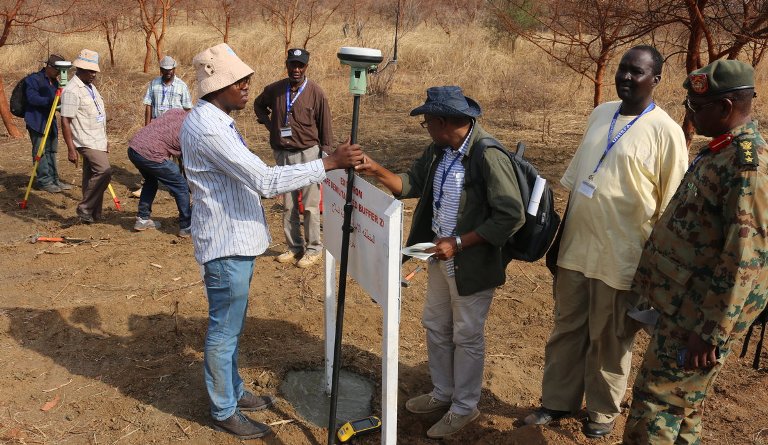Sudan, South Sudan announce imminent opening of four crossing corridors

July 3, 2018 (KHARTOUM) – Sudan transport minister and South Sudan presidential adviser on security affairs Tuesday agreed to open four border crossing points between the two countries within the next few days.
The agreement was announced by the two officials following a meeting held in Khartoum to discuss the implementation of directives of President al-Bashir to open border with South Sudan after the signing of Khartoum Declaration of Agreement on 27 June.
The decision is as a part of measures he announced recently to encourage the South Sudanese parties to implement a peace agreement they signed in August 2015. He said it would facilitate the movement of citizens and the flow of trade between the two countries.
Speaking in Khartoum after the meeting, Presidential adviser, Tut Galuwak told reporters they discussed the border opening and he asked to open all the crossing points as soon as possible to encourage trade between the two sides on the border.
“Minister Makawi expressed the readiness of his government to implement the directives of President al-Bashir and we would like to a announce the good news that the decision includes road, rail and Nile river crossing points,” said Galuwak.
For his part, Minister Makawi Awad confirmed what Galuwak announced and added that four points would be opened very soon before the departure of the South Sudanese official from Khartoum.
“These four crossing corridors, Awad said, include, Kosti-Renk road and river, Meriam – Aweil, rails and road, Heglig-Bentiu, and Al Sumayyah corridors”.
Some of the four points have been marked last March as the two countries did not yet finalize the talks on the border demarcation since the secession of South Sudan in July 2011 and they are part of the Safe Demilitarized Buffer Zone (SDBZ).
Following the South Sudan independence, President al-Bashir ordered the border closure accusing Juba of backing Sudanese rebels in South Kordofan and Blue Nile states.
However, the decision didn’t stop totally the trade between the two sides as the border areas from both sides historically had strong trade relations.
Minister Awad said the Sudanese private sector will contribute to restoring the roads and transportation means.
(ST)
